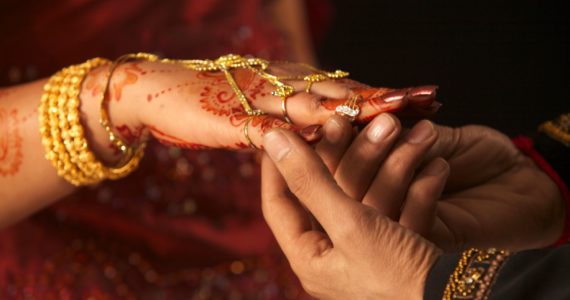Source: https://verilymag.com/2016/11/emotional-intelligence-eq-emotional-quotient-relationship-advice
By Zach Brittle
For almost twenty years, my wife and I have been locked in this playful but serious debate about who is smarter. I’m book-smart. I’m the high achiever with the fancy degrees. I read a lot and write things that somehow show up on the Internet. She’s street-smart. She knows how to get stuff done. She knows how to cook. And read a map. And throw a party . . . not just the details, but the actual being at the party. If she learns something, she knows it forever.
But there’s a form of “smart” that we’ve both been working on for twenty years, and it has made a huge difference in our relationship: Emotional Intelligence (EQ). To be honest and fair, my wife has a huge advantage here. She’s gifted, but I’m getting better. I spent most of the first half of my life not being attuned to the emotional landscape around me. It cost me a lot—I got fired and dumped and “unfriended” a lot—but over the past ten years or so, I’ve come to realize that EQ is as, if not more than, important as intellectual or academic intelligence.
EQ measures your ability to recognize and respond to the emotional conditions of your relationships. The good news is that unlike IQ, EQ is actually something you can improve throughout your lifetime. At its core, it’s really about just two things: awareness and action. The sooner you get a head start on building this skill, the better for you and your marriage.
Awareness Is Your Responsibility
Awareness is the key to emotionally intelligent relationships. I spend way too much time in my counseling office with people who are intellectually brilliant but simply don’t get it. This is a total drag. At the risk of sounding hyperbolic: Awareness is the foundation of every single meaningful and rewarding relationship you will ever have in your life.
Emotional intelligence includes both self-awareness and other-awareness. Emotionally intelligent couples are accessing that self- and other-awareness constantly to stay connected. This awareness allows the couple to open lines of communication and manage conflict. The trick is, both the husband and the wife must be emotionally aware.
There’s a pretty popular perception that men are less emotionally astute than women, but I’m not so sure about that. And I’m not really sure it matters. Every relationship is unique, and they work best when two healthy, committed, mature partners come together.
I asked Laura Heck, my friend and colleague at forBetter.us, an online marriage resource for young couples, what she thought. She had an interesting perspective as a woman, as a wife, and as a therapist:
The perception that “women are more emotionally aware” is complicated. I think it’s more about nurture than nature. Women have been socialized to be better at relationship competencies and social cues. It comes from centuries of being valued primarily as mothers and wives.
I actually think these strict gender roles have hindered women’s personal EQ development, especially when it comes to self-awareness and self-management. We’ve been trained to pay attention to the needs of everyone around us, but that often means that our own self-awareness isn’t a priority. And when you’re not self-aware, you can’t self-manage, so I often see wives expecting—practically requiring—husbands to take care of them.
Partners should take care of one another emotionally, not because they have to—but because they want to. Both men and women should, and can, be aware of their emotional well-being so that they are able to reach out to their partner for bids for connection and support.
Awareness in Action
Pay attention to what you’re feeling. I think it’s even a good idea to carry a little book around, just to check in with yourself. Build your emotional vocabulary. The Pixar movie Inside Out does a great job of representing the many emotions that are floating around inside our bodies. But let’s consider anger, for example. In the movie, anger is red. But anger is many things. It’s rouge and crimson and scarlet and pink and maroon—all variations on a theme. Awareness is about paying attention to those variations in both yourself and the people around you.
But awareness isn’t enough. In fact, it’s pretty useless without action.
Emotionally intelligent people, and couples, use their awareness to guide their decisions and manage their relationships. But it’s not enough to act—true Emotional Intelligence is awareness that leads to appropriate action. That’s Emotional Intelligence. Laura gave me some good insight into how this plays out for couples:
Here is what I see in my office quite often. The woman has a complaint, but she offers it out of frustration or fatigue. The husband hears a criticism and responds with a frustrated flash of rage that includes smoldering and/or yelling and/or name-calling.
All she wants is to express her concern and have him turn toward her with an appropriate kind of frustration, loneliness, anger, or hurt. But neither of them are fully aware, and so she learns to stifle her minor concerns until she can’t hide it any longer (in order to not be the nagging wife) and he learns to ignore her (in order to not be the abusive husband), and the relationship spirals from there.
I see this cycle all the time. The only way out is through an awareness that leads to appropriate action.
In Laura’s example above, neither partner was aware of the emotions and triggers that led their interaction astray. If she instead says, “Hey, I know I’ve been on you about this, but . . .” or “Babe, I might be crazy, but . . .” she can take the edge off her complaint and won’t need to suppress her frustration. If he’s aware that he’s hungry, angry, lonely, or tired (H.A.L.T), he can pause long enough to let those base emotions pass and respond with his best self.
Emotional Intelligence is a skill, but it’s also a discipline. Seriously, practice it. Get your notebook. Try stuff out. Test hypotheses. If you can awaken and improve your EQ, you can absolutely transform your relationships.








